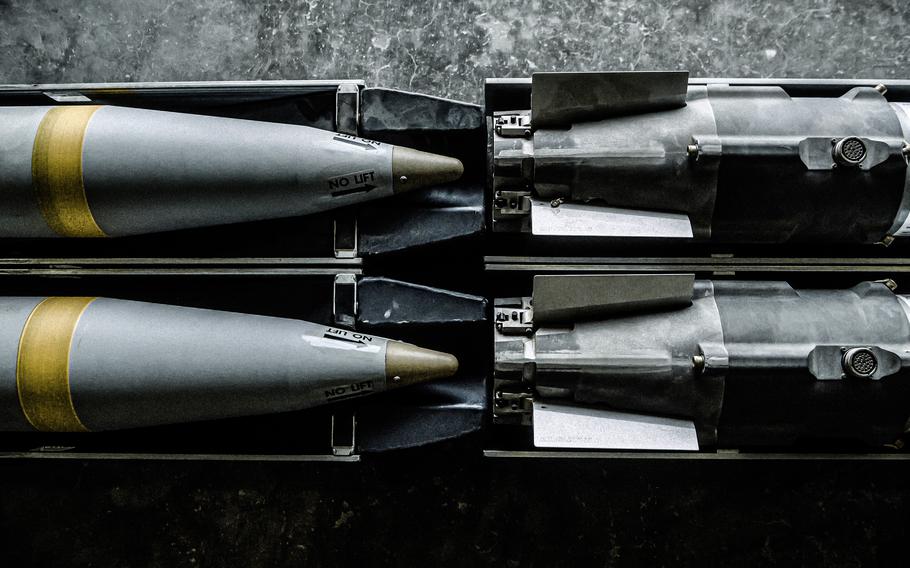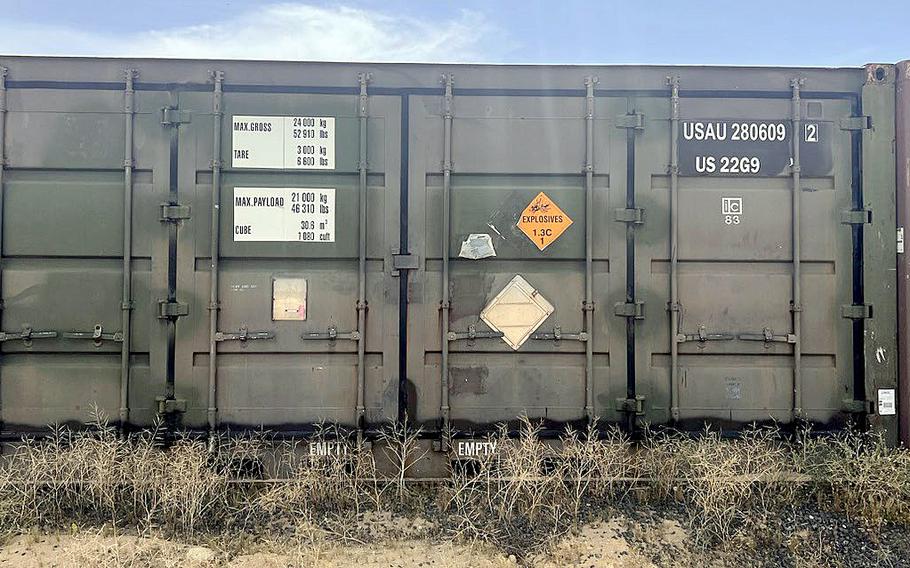
Four GBU-39 small diameter bombs sit in the munitions storage area at Al Udeid Air Base, Qatar, in November 2020. American troops at Al Udeid and Camp Arifjan, Kuwait, were put at risk after officials tasked with storing munitions at the bases failed to do so properly, the Defense Department’s Inspector General determined. (Jordan Martin/U.S. Air National Guard)
American troops at two bases in the Middle East were put at risk because of improperly stored munitions, the Defense Department’s internal watchdog agency has said.
Investigations by the Pentagon Inspector General’s office found that the weapons at the Army’s Camp Arifjan in Kuwait and Al Udeid Air Base in Qatar weren’t stored in accordance with approved limits on net explosive weight, according to two separate reports released Thursday.
The NEW limits refer to the amount of explosive material that can be held at each storage facility and are based on factors such as facility design and condition, and their proximity to other munitions and buildings.
Camp Arifjan exceeded the amount of munitions allowed at one site, increasing the risk of a chain of explosions that could extend to living areas and workspaces, according to the IG. At Al Udeid, some officials didn’t know what the NEW limits were for certain structures.

Flammable weeds near a storage area at Camp Arifjan, Kuwait, posed a fire risk to U.S. troops. Officials tasked with storing munitions at the base failed to do so properly, the Defense Department’s Inspector General said in a report released Thursday. (Inspector General/Defense Department)
“[When] officials do not manage munitions storage in accordance with approved NEW limits, it increases the risk of serious injury, loss of life and damage to property,” the IG said, adding that improper security also can lead to weapons loss and theft.
Most of the storage concerns at Al Udeid — the largest U.S. military base in the Middle East — were related to NEW limits. Officials there otherwise generally adhered to safety and security protocol, the IG found.
The concerns at Camp Arifjan were more extensive.
Soldiers and contractors at the base in some cases worked without approved site plans, which establish limits and distances between sites that are needed to protect against a chain reaction explosion.
Problems linked to lightning protection and potentially flammable weeds near storage areas on the base also were identified.
Thursday’s reports are the first of four aimed at reviewing munitions storage within U.S. Central Command. The Pentagon stores munitions across CENTCOM’s area of responsibility, which includes the Middle East and central Asia.
As of last March, more than 20 million munitions valued at more than $1.8 billion were being stored at Al Udeid, according to the IG, which did not provide the figures for Camp Arifjan.
The reports made several recommendations at both bases and most have been resolved. However, the IG is still calling on officials at Camp Arifjan to ensure appropriate units conduct annual inspections of munition storage facilities, and for officials at Al Udeid to review NEW limits for their facilities at least once every quarter.